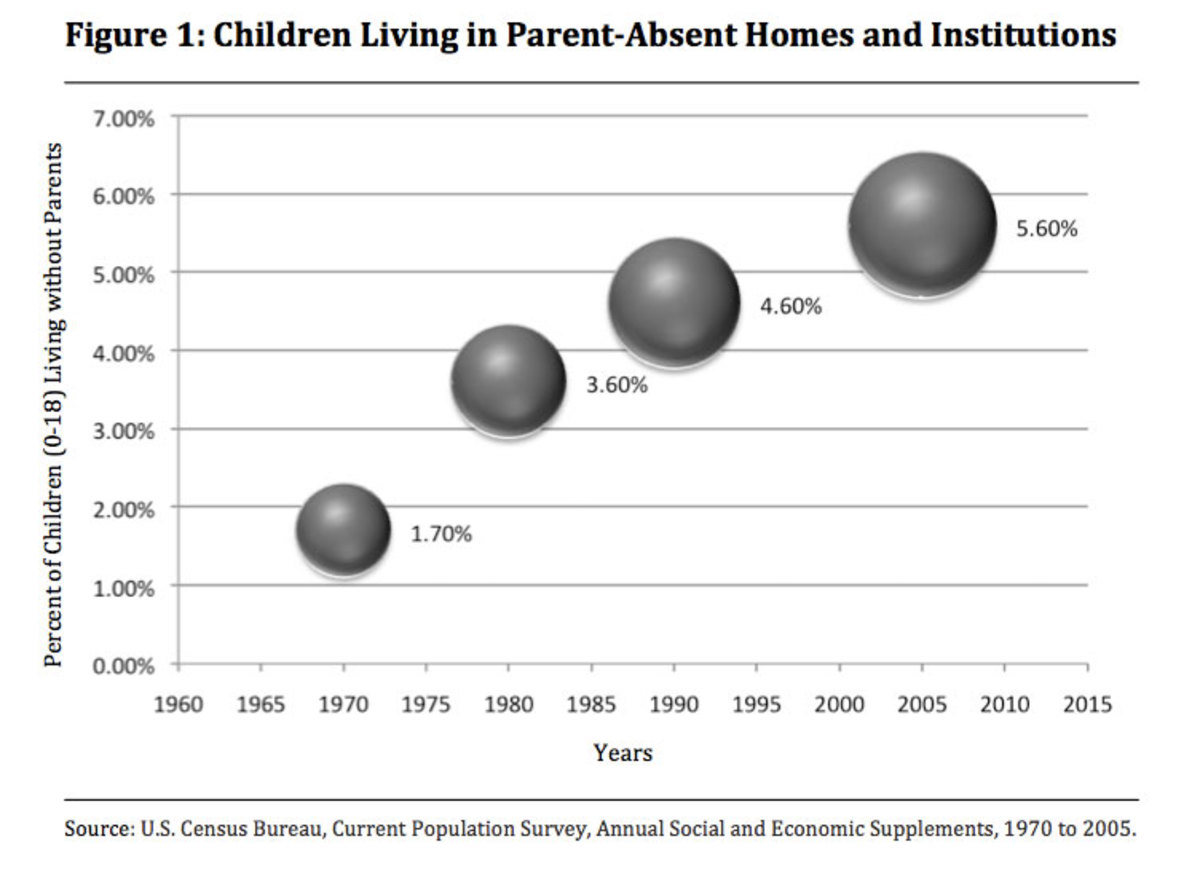Dealing with Difficult Parents: A Guide for Teachers and Parents
Teacher Communication With Difficult Parents
Teaching is difficult! One of the most difficult aspects of teaching is the parent-teacher relationship. Parents can either be your greatest asset or your greatest liability. Unfortunately, there’s a reason so many teachers quit after their first year. Most colleges are not preparing people to actually be successful teachers. Look at some of the teaching forums, and you’ll feel the frustration. New teachers are being overwhelmed by the challenge, because they weren’t prepared for everything teachers have to actually do. Colleges do a pretty solid job of preparing new teachers to teach and perhaps maintain basic discipline, but they entirely miss the mark when it comes to other areas. Colleges simply do not teach new teachers how to deal with difficult parents, work with other teachers, satisfy administration, and comple the deluge of paperwork, both class-generated and bureaucratic, that teachers encounter every day. There’s so little time, and yet the demands are overwhelming. This site is the first of a series dedicated to addressing some of these issues, the difficult parent.
As a veteran teacher, I’ve mentored many new teachers. As an administrator, I tried to support all teachers, including some veterans. I’ve been in the profession long enough to know that teachers have a lot of frustrating experiences. Some of those experiences are with students, but some come from other sources too. Many teachers find that they are most frustrated by administration, colleagues, or parents. After speaking to a new teacher recently, I decided to make my top ten list of the most frustrating difficult-parent requests, complete with teacher tips on how to deal with these requests. In addition, I decided to add one last component, parent tips on dealing with common issues related to each request. Enjoy, and don’t forget to let me know what I’ve forgotten. A comment section is at the end of this article.
Teacher Tip 1: The Demanding Parent
Parents often ask for preferential seating. I can’t tell you how often teachers hear, “My child needs to sit in the front of the class.” Each time I hear this, I feel frustrated. I probably have ten parents, this year alone, making this request. Where do I put all the students? There simply isn’t enough room for all ten. The thing that irritates me the most is that several of these students really don’t need to sit in the front of the class. They see well, but, for whatever reason, their parents want me to put them in the front of the room.
Advice for Parents
If your child really needs to sit in the front of the class, feel free to ask their teacher. Please don’t ask the teacher to do this for no apparent reason. When you do this, you limit the teacher’s ability to make seating charts that will effectively remove classroom discipline problems and assist students who really do need to sit in the front of the classroom.
Advice for Teachers
Make the move, but politely let parents know that this is a temporary solution. The parent needs to take care of the vision issue as soon as possible. Putting their child in the front of the class isn’t a permanent solution. Unfortunately, you’ll find that some of these students, regardless of whether the issue has been addressed, might need to continue sitting in the front of the class.
Free Teacher Websites
Teacher Tip 2: Parent Diagnosis
Parents often struggle to determine why their child isn’t succeeding at the level they expect, so they search for answers. Others are looking for financial assistance at any cost, even if it means that they must falsely have their own child diagnosed with something. When a parent says, “My child has Asperger’s,” an alarm bell goes off in my head. I’ve taught students with Asperger’s Syndrome, and I can tell you that it’s real. Claiming that your child has Asperger’s Syndrome, in an effort to get special attention or financial gain, is simply wrong. Don’t claim your child needs special help unless they really do. Doing so makes us all question your motives, and it takes something away from children and parents who really do need our help.
Advice for Parents
If you feel that your child has Asperger’s Syndrome, seek medical attention, if merely for a clear diagnosis, immediately. If your child is diagnosed with Asperger’s Syndrome, there are support groups and resources available. Always keep your child’s teacher informed about this.
Advice for Teachers
Show me the proof! Never offer accommodations unless medical proof has been given, an IEP has been completed, or administration gives the authorization to do so. Parents may claim that their child has a disorder, but you need to see the proof. You might be surprised to see how many of the parents have self-diagnosed the problem.
Never say, “I think your child might have Asperger’s Syndrome.” Some attorneys, specializing in education law, feel that this might open the school to liability, perhaps in the form of testing and diagnoses fees. Never tell a parent that you think their child has any medical condition, including but not limited to ADD, Asperger’s Syndrome, or dyslexia. Instead, encourage the parent to pursue medical testing for a proper diagnosis. Explain that you are not a doctor, and this is beyond your field of expertise. You may describe what you are seeing, but don’t try to diagnose the problem. Finally, always keep your administration in the loop. You’re not alone here.
Dealing with Difficult Parents
Product Description by Amazon.com
This book helps teachers, principals, superintendents, and all educators develop a repertoire of tools and skills for comfortable and effective interaction with parents. It shows you how to deal with the parent who is bossy, volatile, argumentative, aggressive, or maybe the worst - apathetic. It provides specific phrases to use with parents to help you avoid using "trigger" words which unintentionally make matters worse. It will show you how to deliver bad news to good parents, how to build positive credibility to all types of parents, and how to foster the kind of parent involvement which leads to student success.
Free Parent Websites
Teacher Tip 3: Too Much Communication
Parents often ask, “Could you write a note each day?” Some teachers are fine with this, and others cringe when they hear the question. Teachers usually have a lot of demands. This is one of the most time-consuming demands of all.
Advice for Parents
If your child is struggling with homework completion or misbehavior, ask the teacher for solutions. They may suggest the daily note. They may not. It’s okay to ask the teacher for a daily note if you make sure to limit the duration for which this will occur. You might ask, “For the remainder of this month only, could you please let me know in a quick note?” You might also have your child document daily homework, missing work, and a self-evaluation of their behavior for the day and then request that the teacher sign it if they agree with everything on the note. Again, please limit the duration. Doing this daily might be a way to get your child back on track, but it also takes some responsibility away from your child and puts it on both you and the teacher. Ultimately, your child should complete work and behave on his/her own and not as a result of a daily note.
As a former administrator, I found that the daily note backfired more often than it worked. As teachers, we deal with misbehaviors all day. When you ask to hear about every trivial detail, daily, you might feel that your child is being targeted for misbehavior. We joke about TMI, too much information. Communications is a key to success, but too much communication often results in parent-teacher problems.
Advice for Teachers
If you’re comfortable with daily notes, do them. If not, say no. You can site the reasons I listed above, or you can ask the parent to limit the time in which you will do this.
Teacher Tip 4: All Work and No Play
Teachers have lives too. So many people think that teachers entered the profession solely because of an intense passion for education. Because of this perceived passion, many parents believe that teachers must be willing to sacrifice their lives for the profession. Consequently, we get emails, telephone messages, and notes requesting or demanding us to call, email, or write a note. This is fine, but it goes much, much further than that. I had a note last week. The parent asked me to call her after 7:30 PM. With all due respect, I have a life too. That’s family time for me. Would you ask your doctor to call after office hours? How many professionals, or nonprofessionals, would call back during their off hours?
Advice for Parents
Please respect teachers and their need to have a life. As a whole, we are dedicated and passionate about teaching, but we also have lives outside of teaching. Demanding constant communication, in the form of multiple emails that must be answered throughout the day, is too much. Demanding or asking for daily telephone calls or telephone calls far after hours is too much. Demanding a parent-teacher conference, each time you see me at the grocery store, is too much. Teachers should have great communication, but too much communication actually takes away from the teacher’s time to teach, prepare for lessons, or have a life outside of the classroom.
Advice for Teachers
Always try to have great communication. Try to answer emails, notes, and telephone calls in a timely manner. Consider keeping office hours before or after school, but try not to respond, unless you really need to do so, during your off hours. You have a life too. There’s a reason so many teachers burn out of the profession. As for parents that communicate constantly and expect a response, do so when possible, but keep it short and to the point.
How to Handle Difficult Parents: A Teacher's Survival Guide
Product Description by Amazon.com
Be it "Pinocchio's Mom," who thinks her child never lies, the "Caped Crusader," who will stop at nothing to have a book eliminated from the curriculum, or the "Helicopter Mom," who hovers and swoops in to protect her child from disappointment, this humorous handbook helps educators deal with impossible parents. Each chapter features a hilarious caricature that illuminates common parent anxieties followed by specific, practical methods for addressing the problem. Easily implemented advice on face-to-face confrontations helps teachers approach each conflict with the confidence to get their point across and the composure to keep their professional principles intact.
Teacher Tip 5: Divorced Means Two of Everything
Do you have parent-teacher conference week? I just finished mine. I have 30 students in my class, but I had to do 32 conferences. When people get a divorce, they often demand extra attention from the teacher. I have to do two conferences, two progress reports, two report cards, two IEP meetings, and two of everything. I might as well have two additional students in my class. I’m already doing twice the work.
Advice for Parents
If at all possible, try to get along for the few minutes necessary to meet with your child’s teacher. Try to share progress reports and other important documents. Your child will benefit, and your child’s teacher will appreciate it. If that’s not possible, teachers understand. Please know that this will mean more work for the teacher, so make sure you let them know how much you appreciate this extra effort.
Advice for Teachers
Suck it up, and make it happen. There’s not much you can do here. Demanding or even requesting for both parents to get along probably won’t happen. Breakups are often highly emotional, and you really don’t want to get in the middle of one.
Teacher Tip 6: A Large, Educated New Student
A student is misbehaving. You’ve tried just about every trick in the book. The parent says, “I’m going to come in, sit by her, and spend every day in class.” Just shoot me right now!
Advice for Parents
If you have to sit next to your child, something is seriously wrong. Yes, some teachers appreciate it when you offer to do so. Yes, sometimes it may be helpful. If you’re desperate to resolve the problem, you can offer to sit in the class. Please don’t just invite yourself. Many teachers feel uncomfortable teaching with other adults in their class.
Advice for Teachers
If you’re like me, you really don’t want parents to invite themselves to sit in your class for long periods of time. Yes, the student often behaves better, but sometimes, they don’t. Then you have parent and child arguing, or you find yourself reprimanding the child in front of the parent. This can be very awkward.
When a parent suggests this, I try to let them know that I haven’t exhausted all of my resources yet. I let them know that this should truly be a last resort. If the visit is eminent, try to limit the duration to a few hours or perhaps a day at the most.
How to Deal With Parents Who Are Angry, Troubled, Afraid, or Just Plain Crazy Second Edition
Product Description by Amazon.com
The newly revised, second edition of McEwan’s bestselling classic will help you manage your most difficult audience--emotionally charged, often disgruntled, and occasionally abusive parents.
Teacher Tip 7: I Want to Speak to Your Manager
Nobody likes it when somebody goes over their head with a problem. I don’t like to hear my principal say, “I need to talk to you. I had a meeting with one of your parents.”
Advice for Parents
If it’s at all possible, speak to the teacher first. I know that you want to resolve the issue immediately, but when you go to my principal first, it frustrates me and makes me look bad. If you work with me, and I am unable to satisfy your concerns, by all means, you should contact my supervisor. Going to my supervisor first, however, is not going to please me, because it makes me feel like you’re going over my head. How would you like it if somebody asked for your supervisor before even attempting to work with you?
Advice for Teachers
Once the damage is done, there’s not much you can do but listen, offer meaningful insight, and attempt to solve the problem. Make no mistake, damage has been done to your reputation, regardless of the incident. Any time somebody goes to your supervisor, your name is placed on their radar. Even petty, ridiculous accusations from difficult parents causes damage. Do your best to minimize damage by politely cooperating and being as professional as possible. Refrain from getting angry and putting your foot in your mouth.
Teacher Tip 8: Parenting 101
As teachers, we have completed a significant amount of education, but that doesn’t make us child experts. Parents often ask, “He/she doesn’t behave well at home. Do you have any parenting help or parenting advice?” Believe it or not, I even had one parent ask me to tell her son to clean his room. She said, “He’ll listen to you.”
Advice for Parents
Buy a book on parenting, take a parenting class, or check out sites like this. Please know that I don’t have all the answers either. I know how to teach, but that’s different than being a parent. Do you really want your child to ask each time he/she needs to use the restroom? Do you really want your child to raise his/her hand before speaking? Take a parenting class. Maybe we’ll see each other there.
Advice for Teachers
In a polite way, repeat what was stated in the section above. You’re not an expert on giving parent tips, but you do know that regardless of anything, consistency is the single most important key to success.
Perfect Phrases for Classroom Teachers: Hundreds of Ready-to-Use Phrases for Parent-Teacher Conferences, Report Cards, IEPs and Other School
Product Description by Amazon.com
Find the right words for report cards, parent-teacher conferences, and more
Written for teachers grades K through 12, Perfect Phrases for Classroom Teachers helps you find the right words that will communicate a student’s progress effectively and reveal his or her weaknesses without sounding negative. This book provides lists of words and phrases that convey difficult messages tactfully and with appropriate professionalism, and words and phrases that follow state standards and guidelines for permanent records.
Teacher Tip 9: Parent Accountability
As teachers, we deal with many different personalities. Gone are the days when parents almost always supported teachers. People keep talking about teacher accountability and standards, but nobody every talks about parent accountability and standards. Consequently, teachers find themselves critiqued by just about everybody. There’s always that parent expert, the one who thinks they know how to teach better than you do. I can’t quote them, because you never know what they’re going to say.
Advice for Parents
Teachers have different styles of teaching. You may like some, and you may not like others. By all means, talk to the teacher if you have concerns, but don’t assume that you know more than the teacher does about teaching. Yes, you may remember certain teachers fondly. Perhaps they were master teachers, and your child’s teacher just doesn’t match up against them. Remember, teaching is different these days. The curriculum is bigger, parents and students are more willing to challenge teachers, and politicians and administrators keep talking about teacher accountability. Teaching isn’t easy, and nobody has all of the answers, including you. Keep that in mind, and your conferences will probably be productive.
Advice for Teachers
Keep everybody happy when possible. Parents can be your biggest asset or your biggest liability. Do what you can to keep them happy, but also remember the bigger picture. For example, if you’re spending too much time making daily progress reports and daily telephone calls for a difficult parent, you may not have enough time to prepare for the rest of the class. Be willing to give in a little, but don’t give too much. This is your class. If other parents are happy and your class is successful, maybe you’re just dealing with a difficult parent. If that’s the case, you’ll never satisfy them, regardless of any accommodations you may make.
Teacher Tip 10: Let's Hear the Teacher's Side of the Story
On occasion, I get an irate parent. Typically, parents want to believe their children. That’s actually a good thing. Unfortunately, some parents take this to an extreme. When they do, fireworks are usually unleashed when you have to tell them that their child isn’t telling the truth. I actually had one parent tell me that I was lying. He told me that his son never lied, so I was lying.
Advice for Parents
Sometimes children say things that aren’t true. Sometimes they do this in the form of a lie, and sometimes it’s merely how they have perceived something, through the eyes of a child. The result is that, on occasion, you might not be getting an accurate depiction of what actually occurred. Before immediately believing that there is a serious problem, talk to the teacher. By doing this, you can then make an informed decision.
Advice for Teachers
There’s not much to say here. Some parents are easy to work with, and others aren’t. The key is to listen. Then, keep listening. When it’s your chance to speak, do so in a calm manner, and state your side of the story. At this point, there’s not much you can do. Most parents are reasonable, but others may unleash the fireworks. If they do, listen some more. Apologize if it’s your fault. If it’s not your fault, try to resolve the problem as best you can. If necessary, seek administrative help.
The Tactful Teacher: Effective Communication with Parents, Colleagues, and Administrators
Product Description by Amazon.com
By equipping teachers with the tools they need to communicate effectively with colleagues, parents, and administrators, this handbook prepares them to deal successfully with and understand the dynamics of a variety of work-related situations. Especially helpful for those new to the field, this guide teaches the skills to build effective communication, tailor messages to fit their recipients, and interact with difficult people and under pressure. Using specific scenarios, such as dealing with angry parents, sharing unpleasant information, or communicating in less-than-ideal school environments, different communication strategies, and why they work, are discussed in detail. Advice is also given on handling "The Social Addiction Trap" and those tricky "what's your opinion" questions with grace and aplomb.
Please Leave a Comment
That's my list! What's yours? Tell me what you think I missed.
Other Articles by This Author
- Book Level by Grade: Best Loved, Newbery, and Caldec...
The internet is filled with sites that give book lists and sites that list novels by book level. Few of these sites comprehensively includes a teacher-selected list of the best books for young adults,... - Gifted Education and Higher Student Achievement
Its easy to overlook gifted children, because many of them often seem to effortlessly do well in class. In an effort to make sure that all children learn, we spend more money and time helping children with... - New Teacher Handbook
This new teacher handbook is free and available to all educators. Starting a new year, regardless of whether you're new to teaching or a veteran, can often be overwhelming. I think it tends to be this way, because so many of us try to reinvent the wh - Overlooked Classroom Discipline Strategies
Every teacher needs great classroom discipline strategies. This article, however, isn't about discipline programs. Instead, its about making sure the discipline problems dont occur in the first place. I have almost twenty years of experience in edu - School Rules and Consequences
School rules and consequences are a necessity. While classroom behavior plans are common, school behavior and consequence plans are almost impossible to find, anywhere. This behavior intervention plan is... - Teaching and Preparing for Your First Classroom
The first day of school is so important, and you'll need to spend time preparing for it. Unfortunately, many new elementary teachers tend to spend an inordinate amount of time, in the days before the first day of school, working on bulletin boards an - Year Round Education: The Pros and Cons of School Ca...
Year round education is a controversial topic, one that often ignites fiery debate. With school budgets the way they are, both public and private schools are in a continual search for ways to increase achievement while decreasing costs. With these go













